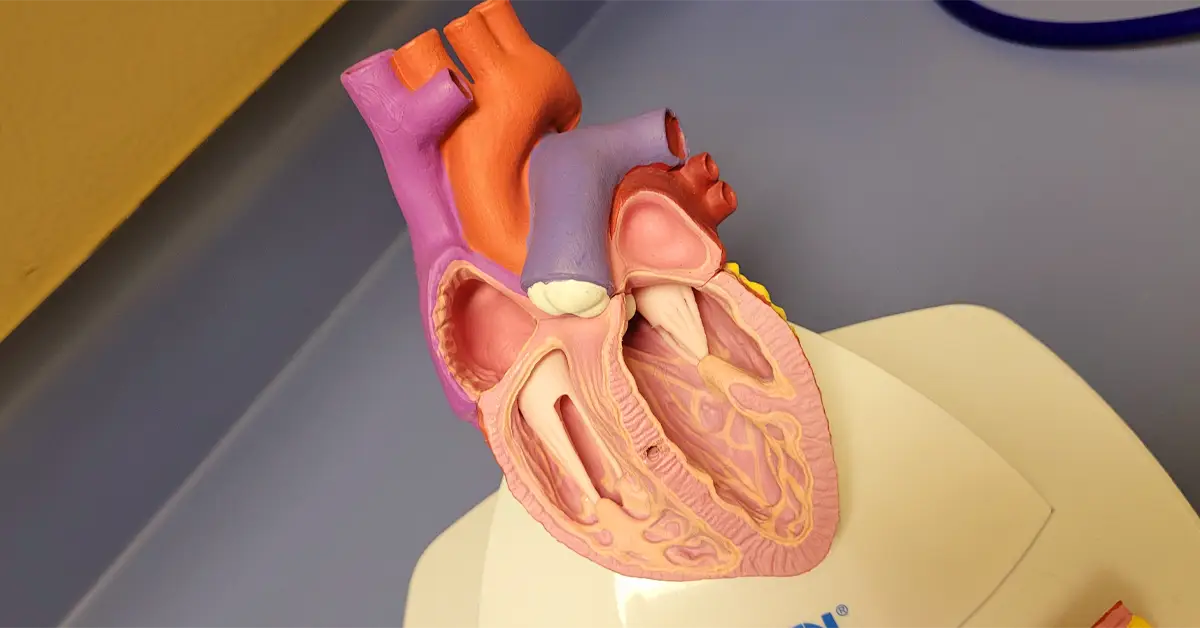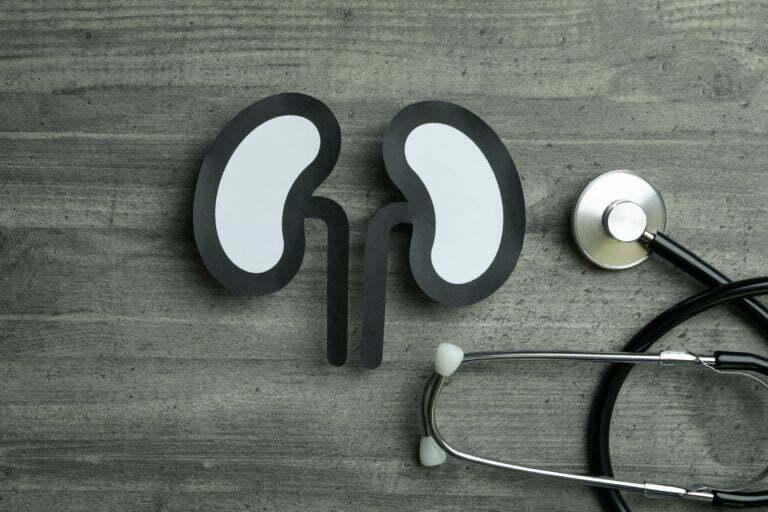Heart valve disease is a common condition that affects the four valves of the heart, which are responsible for regulating the flow of blood in and out of the heart. According to the Centers for Disease Control and Prevention (CDC), when any of these valves are damaged or diseased, it can lead to a variety of symptoms and complications that can impact a person’s overall health and quality of life.
In some cases, heart valve disease can even lead to heart failure or other serious medical conditions. However, with early detection and proper treatment, many people with heart valve disease can manage their symptoms and live healthy, fulfilling lives.
Heart Valve Disease: Definition and Types
Heart valve disease is a condition in which one or more of the heart’s valves, such as the aortic, mitral, pulmonary, and tricuspid valves, are damaged or not functioning correctly. It can lead to a variety of symptoms and complications such as heart murmur, regurgitation, and valve problems.
There are several types of heart valve disease, including:
- Aortic valve disease: This occurs when the aortic valve, which is responsible for regulating blood flow from the heart to the rest of the body, is damaged or diseased. It can lead to symptoms such as chest pain, shortness of breath, and fatigue.
- Mitral valve disease: This occurs when the mitral valve, which regulates blood flow between the heart’s upper and lower left chambers, is damaged or diseased. It can lead to symptoms such as fatigue, shortness of breath, and heart palpitations.
- Pulmonary valve disease: This occurs when the pulmonary valve, which regulates blood flow from the heart to the lungs, is damaged or diseased. It can lead to symptoms such as chest pain, shortness of breath, and fatigue.
- Tricuspid valve disease: This occurs when the tricuspid valve, which regulates blood flow between the heart’s upper and lower right chambers, is damaged or diseased. It can lead to symptoms such as swelling in the legs or abdomen, fatigue, and shortness of breath.
Each type of heart valve disease can have its own unique set of symptoms and complications, and the appropriate treatment will depend on the specific valve affected and the severity of the condition.
Causes and Symptoms of Heart Valve Disease
A heart valve problem, also known as valvular heart disease, can be caused by several factors such as congenital heart defects, infections, and high blood pressure, among others. Age-related wear and tear are also a common cause of valve problems. Some people may develop a heart murmur, which is an abnormal sound heard during a physical exam that may indicate a valve problem.
The symptoms of valvular heart disease can vary depending on the type and severity of the condition. However, common symptoms include:
- Shortness of breath
- Fatigue
- Swelling in the legs or abdomen
- An irregular heartbeat
- Chest pain or discomfort
- Dizziness
- Fainting may also occur.
If left untreated, a heart valve problem can lead to serious complications. The heart may not be able to pump enough blood, which can result in heart failure, stroke, or even death. The American Heart Association recommends heart valve repair or replacement to prevent these complications. Aortic valve stenosis is a common heart valve problem that may require heart surgery.
It’s important to note that not all heart murmurs indicate a valve problem, and some valve problems may not cause any symptoms. However, a valve problem can be developed over time due to other medical conditions.
Diagnosis of Heart Valve Disease
To diagnose heart valve disease, healthcare providers must begin by reviewing the patient’s medical history and performing a physical exam. You may listen for a heart murmur, which may indicate a problem with the heart valves such as mitral valve prolapse or issues with the valve leaflets in the bicuspid aortic valve. You will also evaluate how well the heart is pumping blood, as valve problems may result in the heart not being able to pump enough blood or the valve not opening properly.
The following additional tests may be done to evaluate the condition of a patient’s heart and heart valves:
- Echocardiogram: This test uses sound waves to create images of the heart and can help detect abnormalities in the heart valves and how blood flows through the heart chambers.
- Electrocardiogram (ECG or EKG): This test records the electrical activity of the heart and can help identify abnormal heart rhythms or other issues with the heart.
- Chest X-ray: This test can show the size and shape of the heart and can help detect fluid buildup in the lungs, a sign of heart failure.
- Cardiac MRI or CT scan: These imaging tests can provide more detailed images of the heart and blood vessels and can help evaluate the severity of heart valve disease.
- Stress test: This test measures how well the heart responds to physical activity and can help evaluate the severity of heart valve disease.
- Cardiac catheterization: This test involves inserting a thin tube into a blood vessel in the groin or arm and threading it to the heart. This can help evaluate the severity of heart valve disease and may also be used to perform certain procedures, such as valve repair or replacement.
Treatment of Heart Valve Disease
Heart valve disease treatment depends on the type and severity of the condition. When heart valve disease affects the heart, treatment may involve medication or surgery. For mild cases, no treatment may be required but regular monitoring is necessary to detect any progression. Common treatments for heart valve disease include:
- Medication: Depending on the type and severity of the heart valve disease, medication may be prescribed to manage symptoms, control blood pressure, or prevent blood clots. Diuretics, beta-blockers, calcium channel blockers, and anticoagulants are commonly used.
- Valve repair or replacement: When the heart valve is severely damaged or not functioning properly, valve repair or replacement may be necessary. This involves surgery to replace the valve with a new one or to repair a leaky valve that does not close properly. Procedures may include open-heart surgery, minimally invasive procedures, such as transcatheter aortic valve replacement (TAVR) or mitral valve repair.
- Balloon valvuloplasty: This procedure involves inserting a catheter with a balloon at the tip into a blood vessel and threading it to the heart. The balloon is then inflated to widen the narrowed valve, improving blood flow.
- Heart valve surgery: In severe cases, surgery may be necessary to repair or replace the heart valve. Heart valve repair surgery involves repairing the valve that keeps the valve from opening or closing properly. Heart valve replacement surgery involves replacing the valve with a new one.
- Lifestyle changes: Making healthy lifestyle choices can help manage heart valve disease and reduce the risk of complications. This may include following a heart-healthy diet, exercising regularly, quitting smoking, and managing stress. When the lining of the heart is affected, the heart must work harder to pump blood, so making the heart work less can help reduce the strain on the heart.
Prevention and Lifestyle Changes for Heart Valve Disease
Preventing heart valve disease involves taking steps to maintain a healthy heart and prevent risk factors that contribute to its development. Here are some preventive measures and lifestyle changes that can help reduce the risk of heart valve disease:
- Maintain a healthy weight: Being overweight or obese increases the risk of developing heart disease, including heart valve disease. A healthy diet and regular exercise can help maintain a healthy weight.
- Exercise regularly: Regular physical activity can help maintain a healthy heart and lower the risk of developing heart disease. Aim for at least 30 minutes of moderate-intensity exercise most days of the week.
- Don’t smoke: Smoking damages the heart and blood vessels, increasing the risk of developing heart disease, including heart valve disease. Quitting smoking can help reduce the risk.
- Manage other health conditions: High blood pressure, high cholesterol, and diabetes can increase the risk of heart disease, including heart valve disease. Managing these conditions can help reduce the risk.
- Take antibiotics before certain medical procedures: People with certain types of heart valve disease may need to take antibiotics before dental or surgical procedures to prevent infections in the heart.
- Get regular check-ups: Regular check-ups with a healthcare provider can help detect heart valve disease early and monitor any changes in the heart.
- Enroll in a remote patient monitoring program: Remote patient monitoring can be a valuable tool by allowing healthcare providers to track patient health metrics remotely and identify potential problems before they become severe. By closely monitoring factors such as blood pressure, heart rate, and weight, healthcare providers can work with patients to make necessary lifestyle changes and prevent complications associated with heart valve disease.
DrKumo Remote Patient Monitoring for Managing Heart Valve Disease
Heart valve disease is a chronic condition that requires continuous monitoring to manage effectively. With DrKumo remote patient monitoring (RPM) technology, patients with heart valve disease can receive real-time monitoring in the comfort of their homes. DrKumo solution uses state-of-the-art technology, including AI/ML engines, to provide healthcare providers with real-time intelligence to intervene promptly and effectively.
DrKumo is a technology company that specializes in providing remote patient monitoring solutions for chronic disease management, acute care, post-operation, and hospital care at home. The company is committed to revolutionizing the healthcare industry by solving the most painful problems with a user-friendly solution. DrKumo technology is HIPAA-compliant, mobile-enabled, and continuously monitors patients, making it a valuable resource for healthcare providers and patients alike. With DrKumo, patients with heart valve disease can manage their conditions effectively and receive timely interventions from healthcare providers to maintain their quality of life.
Takeaways
Heart valve disease can affect the normal functioning of the heart, potentially leading to symptoms such as shortness of breath, fatigue, and chest pain. The causes of heart valve disease are varied and can include congenital defects, infections, and age-related wear and tear. Depending on the severity of the condition, treatment may involve medication, minimally invasive procedures, or heart valve surgery to repair or replace the damaged valve, allowing the heart to pump blood more effectively.
Act now to improve patient outcomes and reduce healthcare costs by adopting remote patient monitoring technology for chronic disease management and post-acute care. Contact DrKumo now.
Disclaimer: This information is for educational purposes only and is not intended to replace professional medical advice. Always consult a doctor before making changes to your health.








